<?xml encoding="UTF-8">
By the News@AUC team | These stories appeared online at aucegypt.edu/news and in this format in the Spring 2018 edition of AUCToday.
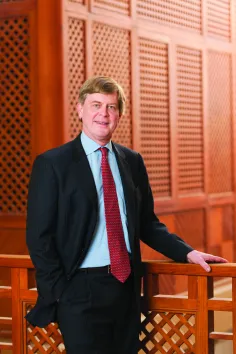
Longtime AUCian Richard Bartlett
Richard Bartlett Chairs Board of Trustees
AUC's Board of Trustees elected Richard Bartlett, managing director of Resource Holdings Ltd, as its chairman, succeeding Atef Eltoukhy '74, chairman of Aurum Capital Management.
Bartlett has known AUC since his childhood, when he lived in Egypt during his father Thomas Bartlett's tenure as AUC president from 1963 to 1969. Sharing his father's passion for education and for AUC, Richard Bartlett has been a trustee since 2003 and previously served as chairman of the board. Richard Bartlett has contributed significant time and energy to the University, as well as philanthropic support for numerous programs and scholarships. In 2011, he established the Molly Bartlett Endowed Scholarship in his mother's name to support top-performing Egyptian public school students who wish to attend AUC.
More recently, Richard Bartlett and his brother Paul Bartlett, both AUC trustees and Princeton University graduates, established the Bartlett Family Fund for Innovation and International Collaboration between AUC and their alma mater.
"Richard Bartlett has extensive experience as board chairman and is a dedicated and committed trustee," said AUC President Francis Ricciardone. "We are proud to have him lead the board during this momentous time for the University with the centennial campaign and celebrations in 2019 -- ushering the next 100 years of excellence, innovation and service."
Bartlett received his JD from Yale Law School and his BA from the Woodrow Wilson School of Public and International Affairs at Princeton University. Before joining Resource Holdings Ltd, a private equity firm in New York City, he served as a law clerk to Supreme Court Justice Harry A. Blackmun, and prior to that, as a law clerk on the U.S. Circuit Court for the District of Columbia. He is a member of the Council on Foreign Relations and the boards of several private companies.
"I am honored to serve the Board of Trustees again in this capacity and will build on Atef Eltoukhy's able leadership," said Bartlett. "AUC is a very unique institution with a strong and vibrant community. I look forward to working with President Ricciardone, the Board of Trustees and the AUC community as a whole as the University enters another milestone in its history."
Read the full story here.
Accreditation Aced: AUC's Accreditation Reaffirmed
The Middle States Commission on Higher Education (MSCHE) has reaffirmed its accreditation of AUC through the 2026-2027 academic year. The University received the top level of MSCHE's reaffirmation of accreditation, without any requirements. Out of 523 institutions worldwide that are accredited by MSCHE, only 17 -- including AUC -- are outside of the United States, with four in the Middle East. AUC is the only University in Egypt that holds this accreditation.
"Congratulations and thank you to all whose daily work to make AUC an amazing institution has won us this vitally important, highest official recognition of our performance at, or exceeding, the highest American standards," said President Francis Ricciardone.
After a rigorous self-assessment process and the production of a 100-page self-study report, AUC welcomed a team from MSCHE in March 2018 to observe the University's congruence with its self-study, determine AUC's compliance with MSCHE standards, provide recommendations for areas that can be further enhanced and meet with all AUC constituencies. AUC's Accreditation Steering Committee had been compiling data, considering University needs and seeking input from community members, to finalize the self-evaluation presented to the MSCHE team.
With AUC's recent reaffirmation of accreditation, MSCHE gave recommendations and noted a number of AUC accomplishments, including the establishment of Employability and Career Development Centers at several Egyptian public universities; improvement of the enrollment process; implementation of a cocurricular transcript; integration of planning, resource allocation and assessment in all areas of the University; as well as documentation and data usage for planning and assessment.
"In higher education, institutional accreditation by a reputable agency such as the Middle States Commission on Higher Education is an unparalleled hallmark of quality," attested Iman Megahed '90, '93, AUC's chief strategy and institutional effectiveness officer.
"At a time when accreditation is becoming considerably more rigorous, with accreditation probation and warnings issued to some institutions worldwide, AUC's accreditation was reaffirmed and praised on multiple fronts by the visiting team. Every member of the AUC community can feel a genuine sense of pride that they belong and contribute to the well-being and advancement of this University."
Read the full story here.
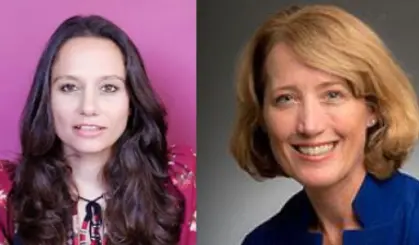
Nora Abousteit, left, and Kristin Lord, right
Jumping on Board: Nora Abousteit and Kristin Lord
Nora Abousteit '00, founder and CEO of social-crafting business CraftJam Inc., and Kristin Lord, president and CEO of the global development and education nonprofit IREX, are AUC's newest trustees.
Abousteit speaks German, Arabic and English. She graduated from AUC with a bachelor's in Middle East studies and a minor in philosophy. She is the founder of online crafting communities, including the world's largest sewing network, and Kollabora, an online community for DIY [Do It Yourself] projects and makers. Her current company, CraftJam, organizes hundreds of monthly social crafting occasions in New York City.
"My time at AUC was one of the most formative in my life," said Abousteit. "It nurtured a great love of the institution and the people there, as well as a strong belief in the mission of AUC and my responsibility to help carry it forward."
Lord, who received her MA and PhD in government from Georgetown University, previously served as acting president and executive vice president of the United States Institute of Peace and held two associate dean positions at The George Washington University's Elliott School of International Affairs.
She is also a member of the board of directors for the U.S. Global Leadership Coalition and a lifetime member of the Council on Foreign Relations. "I am truly honored to join the Board of Trustees of AUC -- an institution devoted to preparing young people to contribute to an even brighter, more prosperous future for the people of Egypt, the region and the world," Lord said.
Read the full story here.
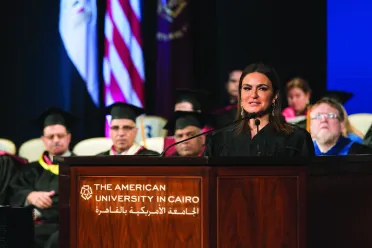
Minister of Investment and International Cooperation Sahar Nasr '85, '90 speaks at the midyear commencement
Commencement Speakers: A Tip from the Top
At AUC's 2018 Midyear Commencement, Naguib Sawiris, executive chairman of Orascom Telecom Media and Technology Holding and chairman of Orascom TMT Investments, shared "the secret to success" as the keynote speaker for bachelor's degree candidates. "Don't accept 'no' for an answer," he advised. "Whenever someone tells you it's not possible, don't just trust what [they say]. Try [it] yourself. ... Intelligence without hard work won't get you to the end of the road."
Egypt's Minister of Investment and International Cooperation Sahar Nasr '85, '90 came back to her alma mater at the midyear commencement as the keynote speaker for the graduate Class of 2018. "You will, at some point in time, get disappointed and experience tough times. But never let this put you down -- ever," she affirmed. "When it seems like it's getting too hard, push back even harder. This is the only way you will be an achiever."
At the 95th Commencement held in June 2018, Mahmoud Mohieldin, senior vice president for the 2030 Development Agenda, United Nations Relations and Partnerships at the World Bank Group, received an honorary degree from AUC. "I am profoundly honored," he said, "by the decision of The American University in Cairo and its Board of Trustees to confer upon me the degree of Doctor of Humane Letters." Advising graduates to "broaden the scope of [their] opportunities...beyond borders, beyond disciplines," he said, "Your journey starts now. It is yours to define."
Minister of Tourism Rania Al-Mashat '95 addressed master's and PhD candidates at the June 2018 Commencement. "I just remember my own graduation [from AUC], which happened to be June 22, 1995," she reflected. "I will never forget the vice provost at the time looking at all of us and saying: 'The certificate you have in hand is more important than your marriage certificate. It will not be revoked, and it cannot be nullified.' So to that, congratulations to all of you!"
Read the full story about 2018 graduate and undergraduate commencements here. Click here for videos of the commencement speeches on AUC's YouTube!
Celebrating 50 Years of CASA
At its seventh annual Benefit Dinner in New York, AUC raised more than $600,000 to go toward the Center for Arabic Study Abroad (CASA) Endowment Fund. The fund will support CASA, the world's premier, full-immersion Arabic-language program that is celebrating its 50th anniversary this year.
Prominent and long-standing members of the AUC community, along with Egypt's Minister of Investment and International Cooperation Sahar Nasr '85, '90, were present to thank donors and encourage support for the University.
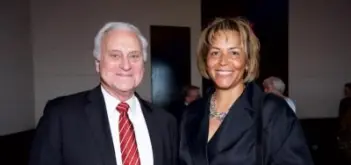
President Francis Ricciardone and Lois "Elle" Johnson
U.S.-based TV writer and producer Lois "Elle" Johnson opened the event by describing her time at AUC in 1986, when she came as a presidential intern to work at the Office of Development. "Although I was not a CASA participant, AUC's Presidential Internship Program opened my eyes to this part of the world," said Johnson, now a writer and producer for shows including CSI: Miami and Law & Order. "It was also my first time living outside of the U.S., in a place where I didn't speak the language and couldn't read any of the signs."
Johnson continued, "I was a black girl who had attended predominantly white schools. At AUC, my right to be there was never questioned. To be thought of as 'other' in your own country then go halfway around the world to finally, casually, be accepted as 'American' was an incredibly empowering experience for me. Being at AUC, being in Egypt made me believe I could do anything."
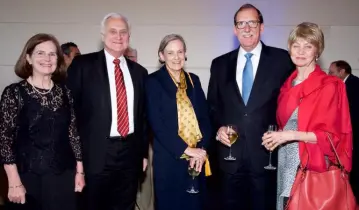
Dr. Marie Ricciardone, President Francis Ricciardone, Former AUC President Lisa Anderson, Former AUC President David Arnold and Sherry Arnold
Over the last 50 years, CASA graduates have shared Johnson's feeling of empowerment through immersion. A number of the program's alumni came to the dinner -- one of whom took the microphone to share her success story.
Susan Peters (CASA '98), senior advisor at ABANA, described how much the program influenced her language skills and preceding career, which has been spent in nonprofit management, with a focus on the Middle East and North Africa region.
"There's a moment when you stop having to pay attention to language and get to engage in a meaningful exchange of ideas in that language. It's when you actually get the punchline," Peters said. "CASA's real gift is that moment when the penny drops. It provides a self-confidence and familiarity that allow you to be a participant in another culture, not just a student or observer."
To support CASA and contribute to the CASA Endowment Fund click here.
To read the full story about the benefit dinner, click here.
Better off Blended: AUC Offers First Blended Degree in Region, Pairs with MIT
Pioneering new pathways in education, AUC is now the first University in the region to offer a blended degree, pairing with the Massachusetts Institute of Technology to grant MITx MicroMasters online learners credits that would count toward the completion of a full master's degree at AUC.
AUC is the first University in the world to collaborate with MIT in recognizing credits for this particular online program on Data, Economics, and Development Policy (DEDP), offering a possible pathway to earning a full master's degree from AUC in economics in international development. The Abdulla Al Ghurair Foundation for Education, one of the largest privately funded philanthropic education initiatives in the world, will fund eligible Arab students for the DEDP.
This move was instigated following the launch of a program, led by the foundation in collaboration with MIT, to build the capacities of AUC and the American University of Beirut faculty members and instructional designers/staff in blended learning. The broader goal of the program is to develop and promote quality online learning in the Arab world.
"I am thrilled that AUC is the first University in the region to take on the exciting challenge of formally adopting blended learning," said Maysa Jalbout, CEO of the Abdulla Al Ghurair Foundation for Education. "This is a visionary move and one that will encourage other universities in the region to follow suit and to open up a new world of higher education opportunities for Arab youth."
MIT offers several online MicroMasters credentials through its online course database, MITx. Participants who complete the online program are given the opportunity to use their earned credentials to complete a master's degree in person at MIT. With AUC now in the fold, participants will be able to apply these credits toward completion of a master's degree at the University. "We are excited that AUC will offer credit towards [its] own master's programs to students who complete the DEDP MicroMasters credential and pass the AUC admissions process," said Krishna Rajagopal, dean for digital learning at MIT. "We believe that [this] collaboration will advance the education and careers of many learners who would not otherwise have been able to complete master's degrees."
Online learners who complete the MITx MicroMasters in DEDP will be able to earn nine graduate credit hours toward completion of the AUC master's degree in economics in international development at the School of Business, if accepted into the program. This opportunity will be available to potential applicants to the AUC program in economics in international development starting September 2018.
To read the full story, click here.

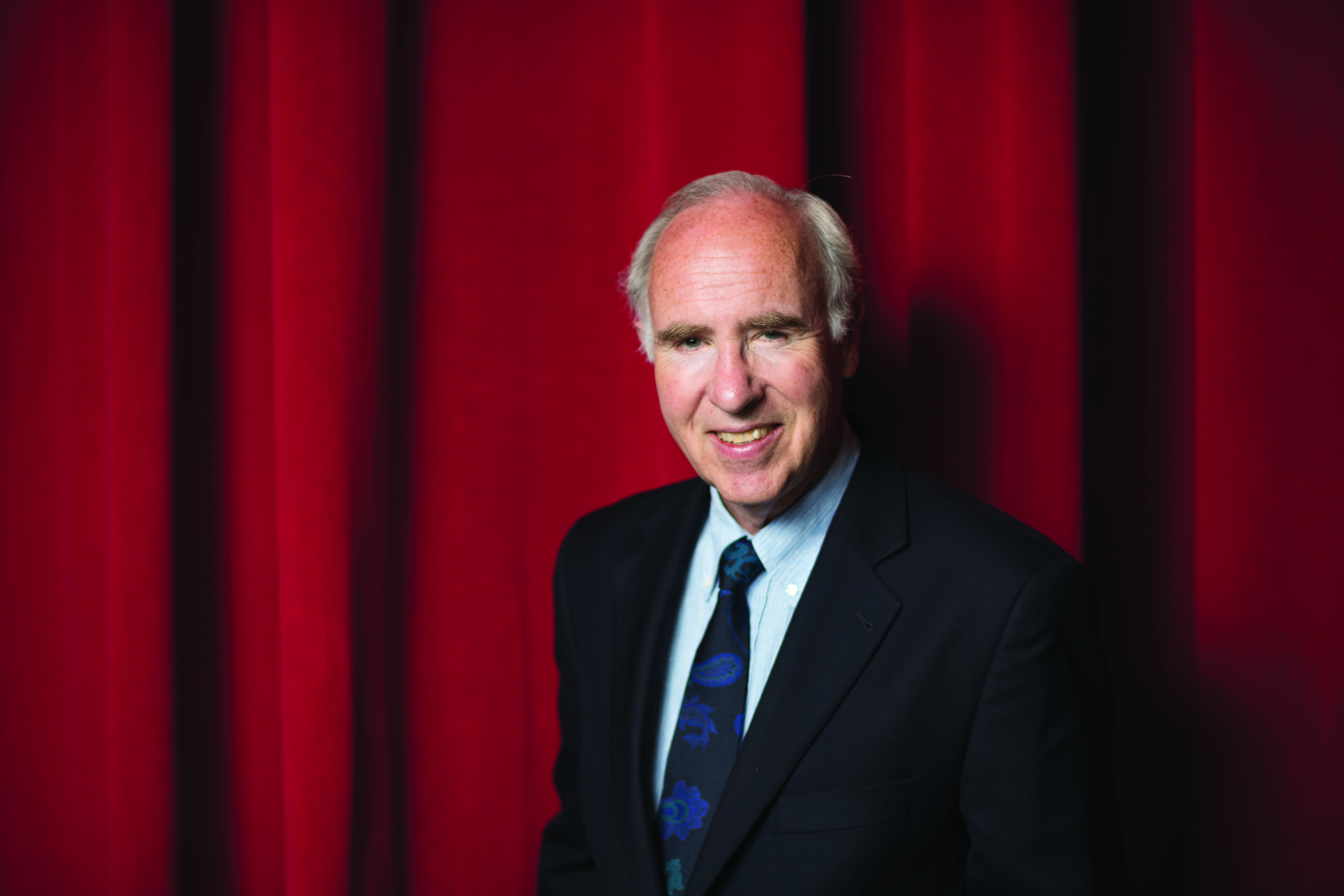
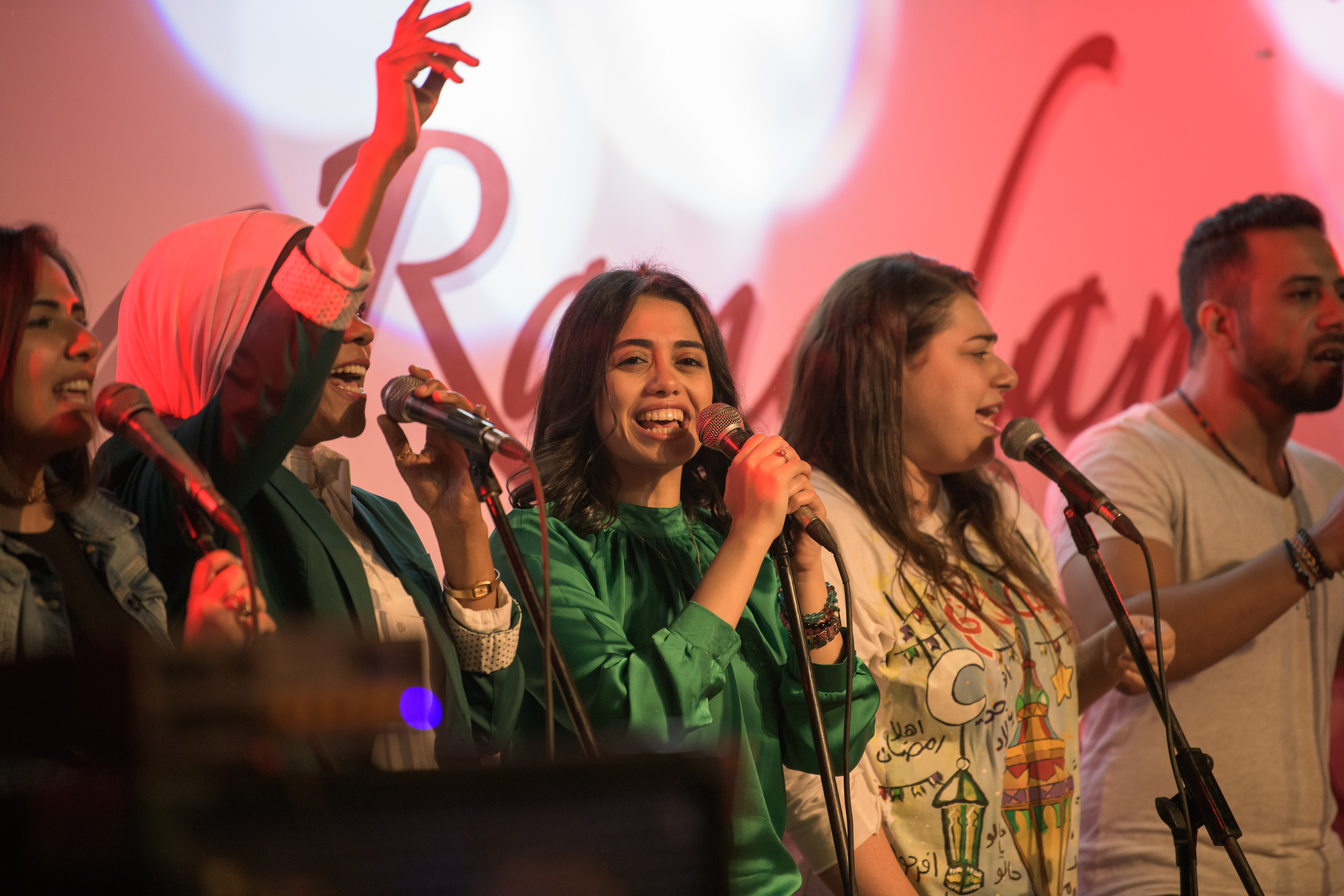
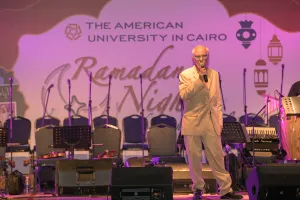 Haynes Mahoney on stage at AUC's first Ramadan Nights event. Photo by Ahmad El-Nemr.
Haynes Mahoney on stage at AUC's first Ramadan Nights event. Photo by Ahmad El-Nemr.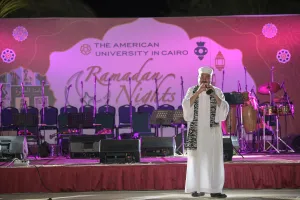 Other performers -- including some AUCians -- performed before Ayamna El Helwa. Photo by Ahmad El-Nemr.
Other performers -- including some AUCians -- performed before Ayamna El Helwa. Photo by Ahmad El-Nemr.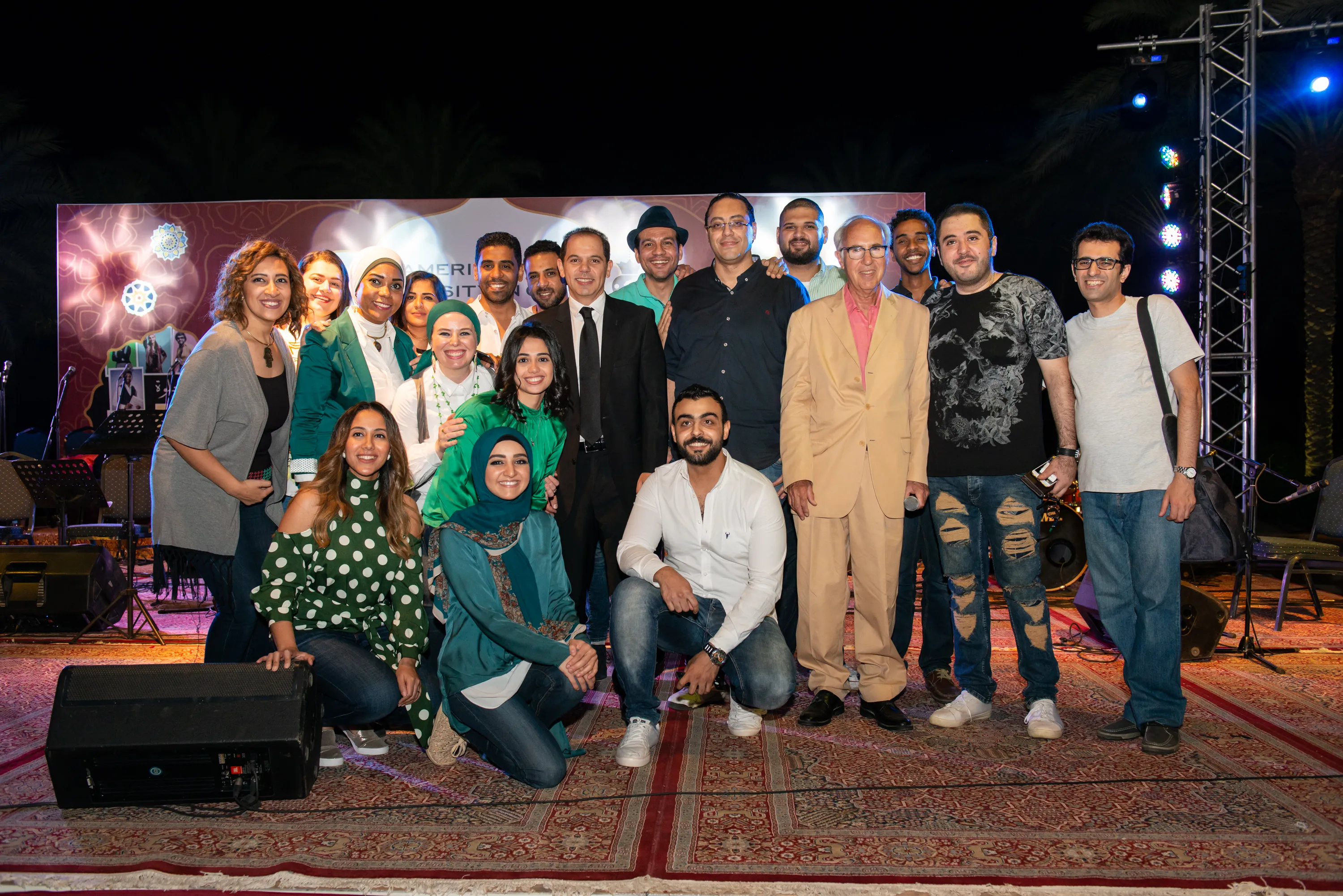 Ayamna el Helwa with Haynes Mahoney and Rami Imam. Photo by Ahmad El-Nemr.
Ayamna el Helwa with Haynes Mahoney and Rami Imam. Photo by Ahmad El-Nemr.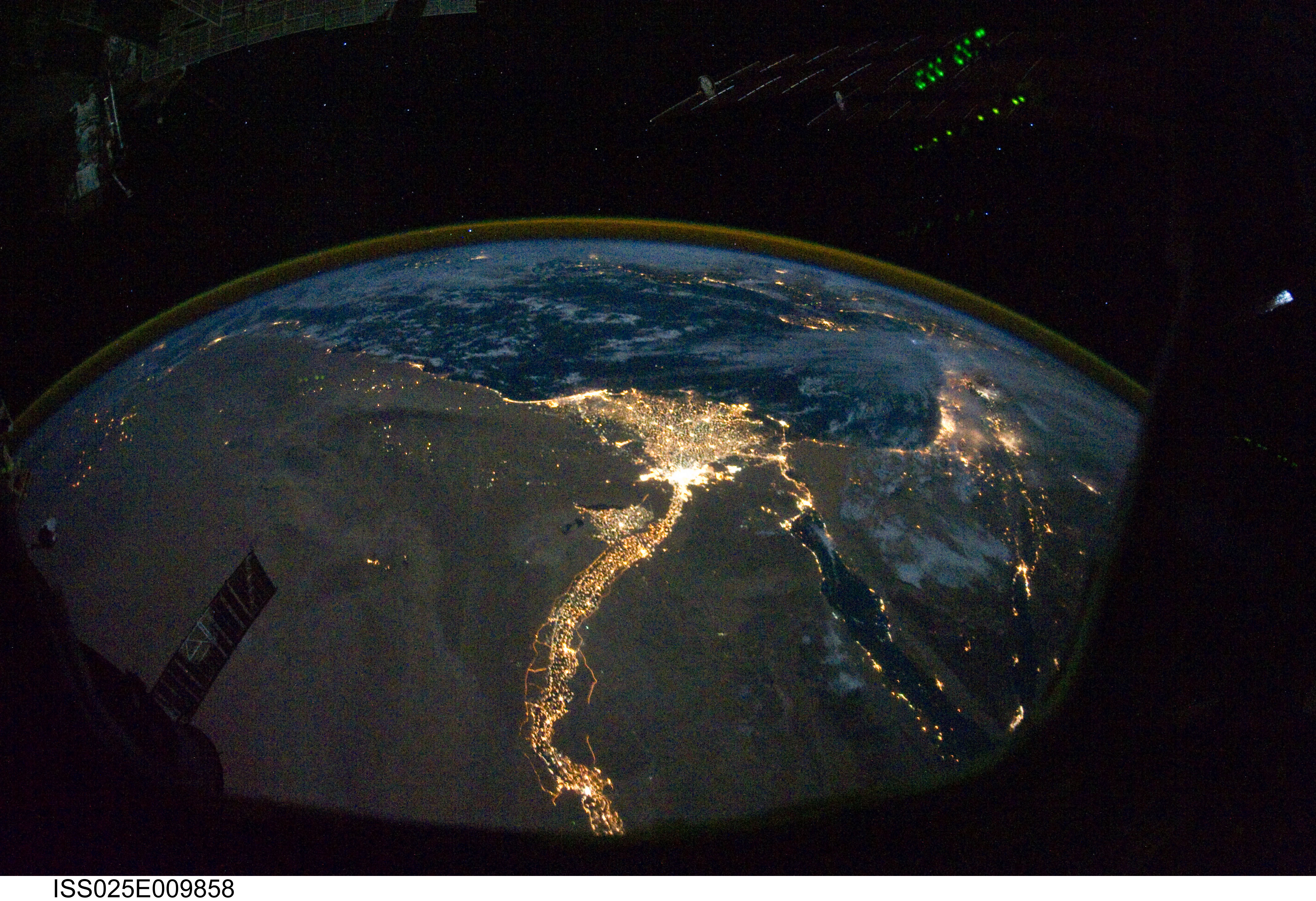
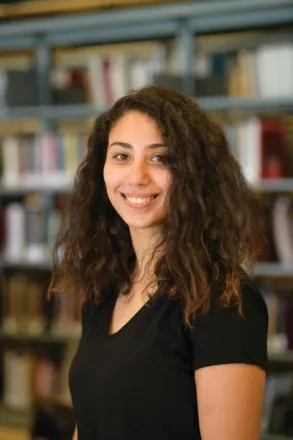 Sara Ali. Photo by Ahmad El-Nemr.
Sara Ali. Photo by Ahmad El-Nemr.
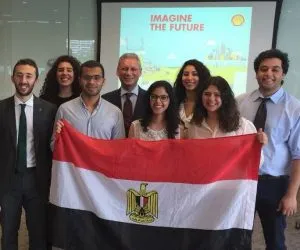
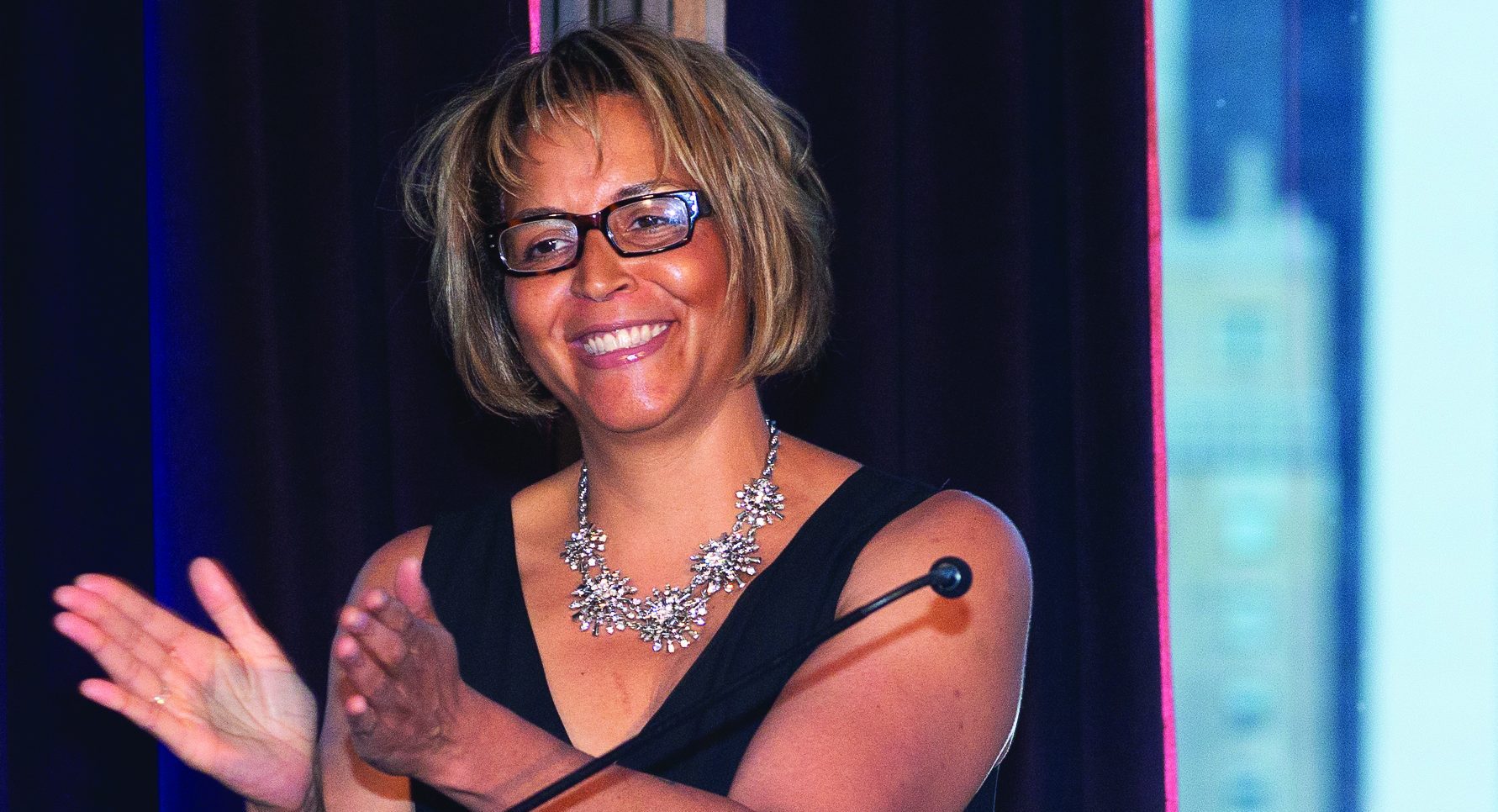
 Longtime AUCian Richard Bartlett
Longtime AUCian Richard Bartlett Nora Abousteit, left, and Kristin Lord, right
Nora Abousteit, left, and Kristin Lord, right Minister of Investment and International Cooperation Sahar Nasr '85, '90 speaks at the midyear commencement
Minister of Investment and International Cooperation Sahar Nasr '85, '90 speaks at the midyear commencement President Francis Ricciardone and Lois "Elle" Johnson
President Francis Ricciardone and Lois "Elle" Johnson Dr. Marie Ricciardone, President Francis Ricciardone, Former AUC President Lisa Anderson, Former AUC President David Arnold and Sherry Arnold
Dr. Marie Ricciardone, President Francis Ricciardone, Former AUC President Lisa Anderson, Former AUC President David Arnold and Sherry Arnold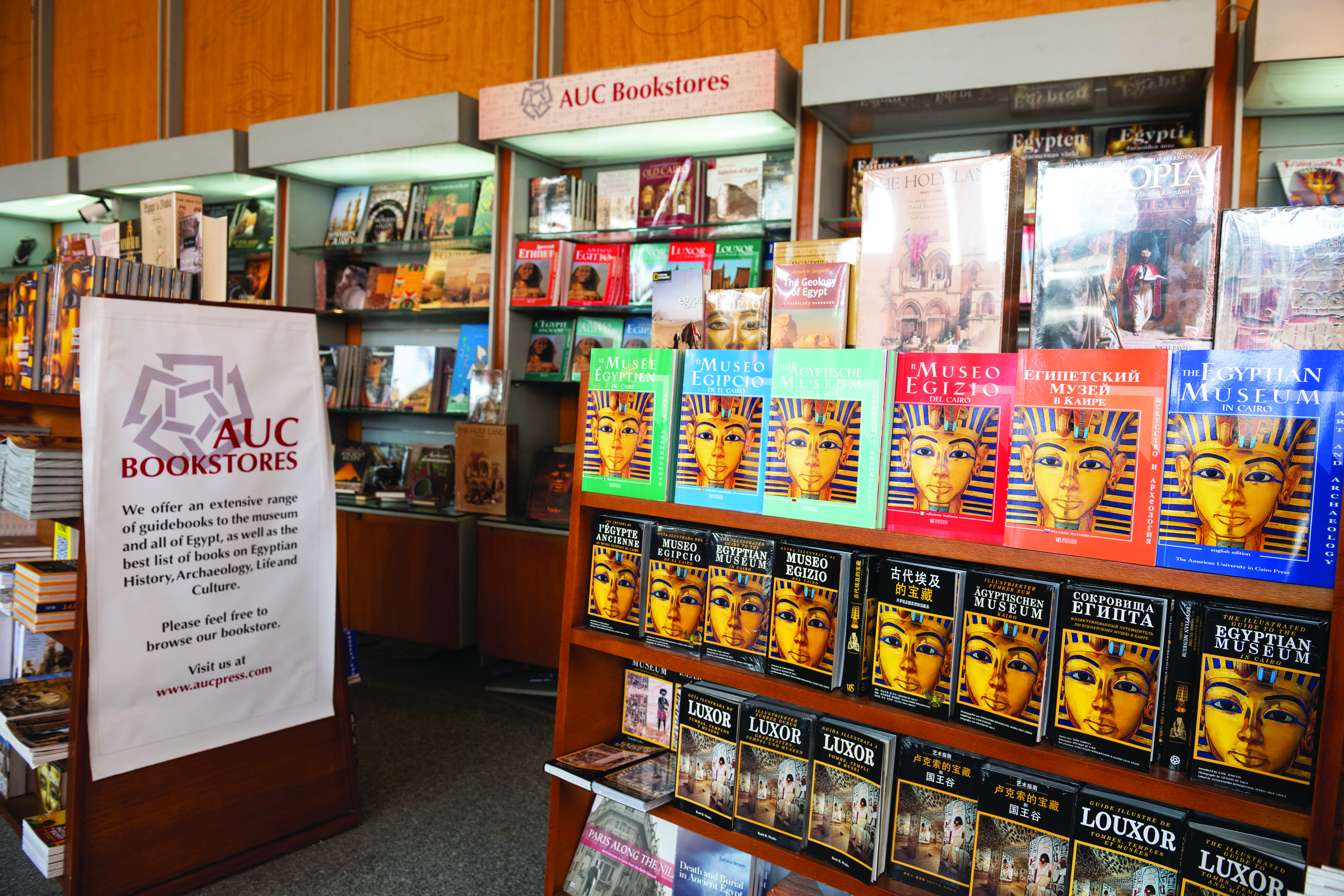
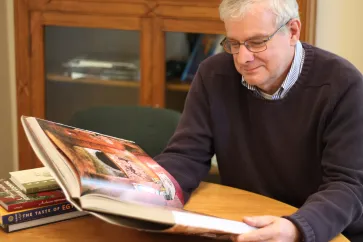 Nigel Fletcher-Jones in his office at the AUC Press headquarters in Downtown Cairo. Photo by Elizabeth Lepro.
Nigel Fletcher-Jones in his office at the AUC Press headquarters in Downtown Cairo. Photo by Elizabeth Lepro.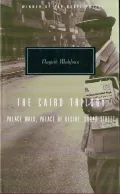
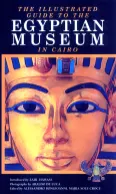
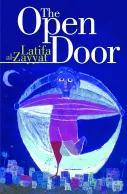
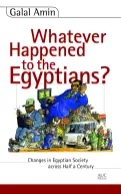


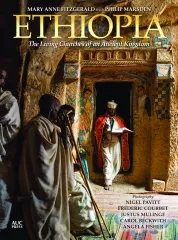

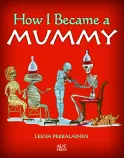
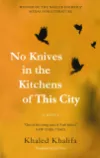

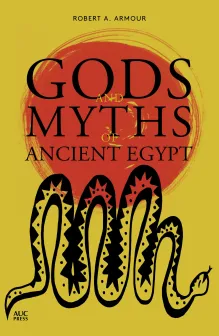
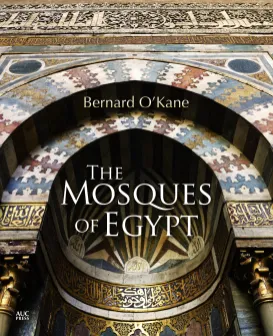
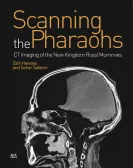
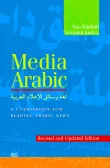
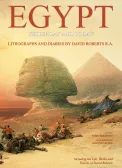

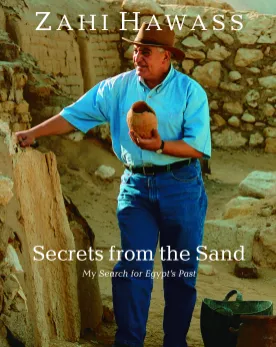
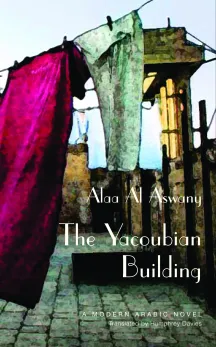
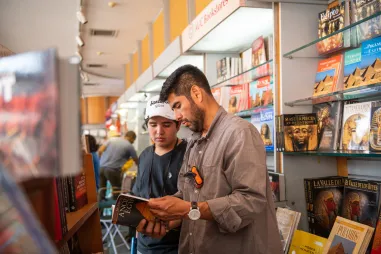 Customers browse the AUC Press section of the Egyptian Museum.
Customers browse the AUC Press section of the Egyptian Museum.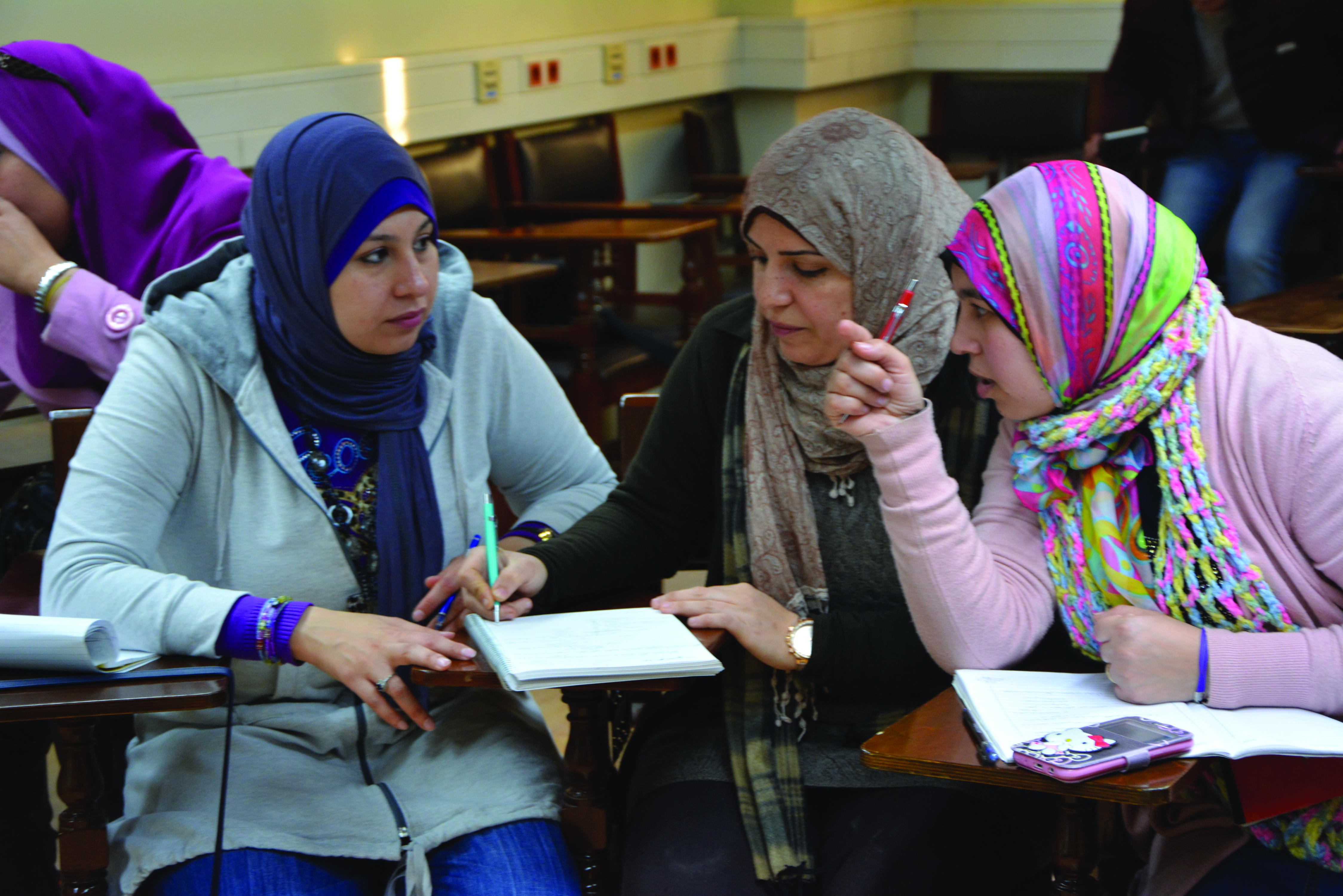
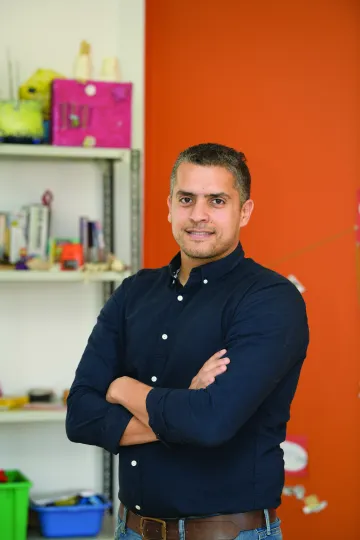 Seif Abou Zaid '08, '17, CEO of Mavericks school. Photo by Ahmad El-Nemr.
Seif Abou Zaid '08, '17, CEO of Mavericks school. Photo by Ahmad El-Nemr.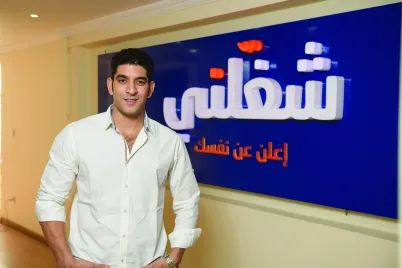 Omar Khalifa '08 in front of the office for his online recruitment platform Shaghalni. Photo by Ahmad El-Nemr.
Omar Khalifa '08 in front of the office for his online recruitment platform Shaghalni. Photo by Ahmad El-Nemr.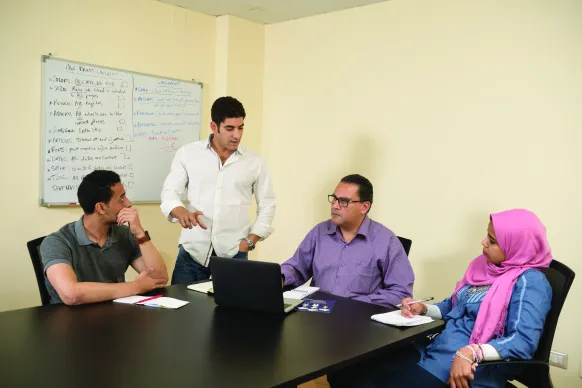 Khalifa's website now has more than 90,000 users and 8,000 companies -- connecting people with jobs across the country. Photo by Ahmad El-Nemr.
Khalifa's website now has more than 90,000 users and 8,000 companies -- connecting people with jobs across the country. Photo by Ahmad El-Nemr.
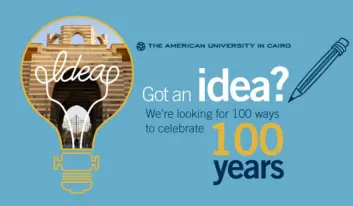
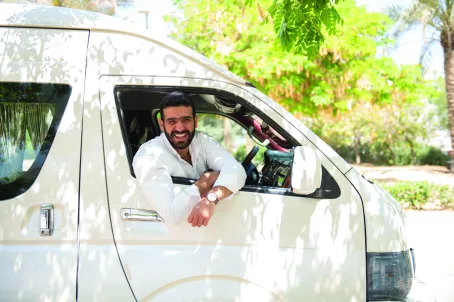 At just 25 years old, Kandil is already changing the rideshare industry in Egypt. Photo by Ahmad El-Nemr.
At just 25 years old, Kandil is already changing the rideshare industry in Egypt. Photo by Ahmad El-Nemr.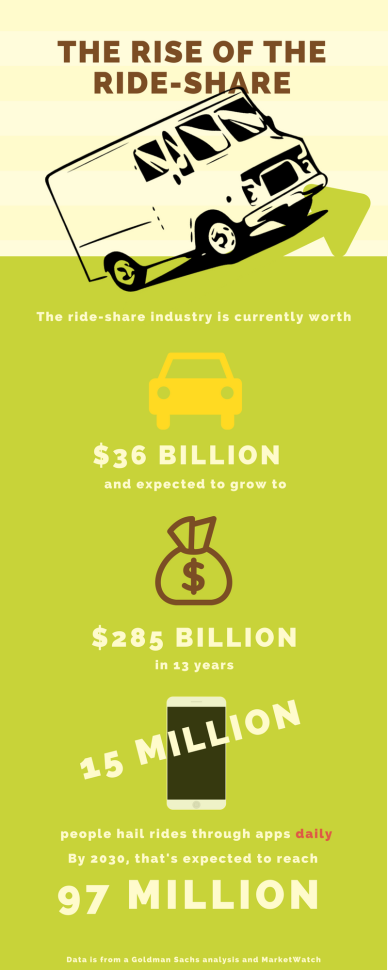 Swvl comes as a cost-friendly and useful alternative for commuters, given the challenges associated with public transportation in Egypt -- whether in terms of the reach of the bus and metro network or the lack of a clear system. Through this application, Kandil and his partners have been able to build an entire transportation infrastructure in Egypt, offering a reliable and accessible service that spans across Cairo and even extends outside of the capital.
Swvl comes as a cost-friendly and useful alternative for commuters, given the challenges associated with public transportation in Egypt -- whether in terms of the reach of the bus and metro network or the lack of a clear system. Through this application, Kandil and his partners have been able to build an entire transportation infrastructure in Egypt, offering a reliable and accessible service that spans across Cairo and even extends outside of the capital.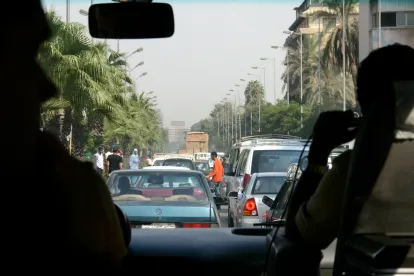 Traffic in Cairo can make owning a car of your own an annoyance. Photo via IaSousa on Flickr.
Traffic in Cairo can make owning a car of your own an annoyance. Photo via IaSousa on Flickr.